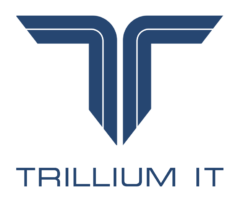Unsure what the cloud is or how it may benefit your business? Don’t worry; we’ve covered everything you need to know about cloud computing.
When I worked at Apple, my clients frequently asked me to describe the cloud. They’d heard the term “iCloud” on their devices, but they had no idea what it meant, what it did, or where the cloud was.
I don’t think the large IT corporations that contributed to making cloud computing a reality for the typical customer did a great job describing it. That’s probably why I’m here. I’ll give you an overview of all you need to know about the cloud and its benefits for small businesses.
What Is Cloud Computing?
It is a perplexing area where it appears that all of our information resides. Others are afraid of it, while others do not understand it. But precisely what is “the cloud”? In its most basic form, cloud computing is a technology for remotely hosting and storing files and running applications on hardware from outside sources over the internet.
Your files are kept in big data centers accessible from anywhere worldwide. This concept has infiltrated modern concepts like cloud-based gaming, which feeds game functionality to your computer from third-party cloud servers and PCs via the internet. Isn’t it incredible?
However, because cloud computing has radically changed how we do business, we’ll focus on it in this piece as it relates to small businesses.
You may wonder why you should migrate to the cloud when your mid-2010 PCs and bare in-office servers have served you well. Not to worry, I’ve highlighted seven significant benefits of cloud computing that your small business should consider.
Take that step into the future right now!
Benefits of Cloud Computing for Small Businesses

These are some benefits that cloud computing can provide to small enterprises.
Data security
Contrary to popular belief, using a cloud platform to manage your business and keep your data is reasonably secure. Although you may be the only one who takes security seriously, intention and practical skill are not the same.
It’s challenging to monitor your data security without a lot of resources because the number of cybersecurity hazards constantly expands, particularly in the aftermath of COVID-19.
Amazon, Microsoft, Apple, and other large companies that use cloud technology have more resources to reduce, identify, and eradicate cybersecurity threats than most small businesses.
They are constantly researching new security issues, developing new encryption techniques, and monitoring for system intrusions to maintain the safety and security of your data.
Instead of worrying about encryption, network traffic monitoring, managing all of your software changes, and maintaining your data server architecture, you can delegate these tasks to your cloud solution services.
You can’t keep up with a corporate data security team unless you’ve recruited a top-tier IT and cybersecurity staff that knows your network architecture and data rules.
As a result, relying on cloud computing for data preservation is far more advantageous than spending a fortune on physical data storage, server upkeep, and security.
Remote Access
Cloud computing is analogous to your email account. You can access your central email account from any computer with your login information and an internet connection. This ease of usage is what draws many businesses to cloud computing. The cloud allows you and your team to access your work from anywhere.
Remote access leads to increased productivity and workspace flexibility. If you work in a white-collar job, you’re probably using cloud computing to conduct business remotely amid the COVID-19 pandemic.
Cloud computing lets you do business from anywhere, so you don’t have to worry about pandemics, floods, fires, or hurricanes ruining your office. Your data is accessible as long as it is stored in the cloud.
There Is Little to No Maintenance
Remember what I said about the cloud computing industry’s security concerns? Regular server maintenance, software updates, and network administration are all required for that security. Fortunately, cloud computing removes all of that upkeep from your hands and places it in the hands of competent experts.
You don’t have to worry about replacing outdated technology every three to four years because none of it is hosted by you. You won’t have to worry about any maintenance, giving your company more time to focus on the product or service it provides.
You need this peace of mind, especially if your company is new and you don’t have the resources to deal with significant equipment upgrades.
Lower IT Costs
Although I would not recommend eliminating your IT crew, moving most of your activities to the cloud considerably reduces the stress on that team. Cloud computing requires less care than office networking because there are no data servers or other physical IT requirements.
As a result, you won’t need a large IT team, nor will they have to manage the operations, maintenance, and security of on-site hosting and data storage.
Emergency Recovery
There should never be any downtime in a firm. It just leads to decreased productivity and expensive waste. Fortunately, working on the cloud will provide peace of mind in a disaster.
As previously stated, all your data is stored offsite on third-party servers. You can access it even if your business burns down or is swept away to Munchkin Land by a cyclone. Cloud apps will give your company a sense of resilience against the elements, regardless of the disaster or setback.
Coordination and Openness
Do you remember sharing document versions over email without knowing what was changed or when updating it? Remember how those procedures would result in duplications of effort when just the immediate user could access and alter such documents?
It’s all history now, thanks to cloud computing. Cloud computing improves team cooperation and transparency of work amongst teams. Whether you’re working on lead management or sales strategy, cloud computing allows you to share this information with everyone on your team instantly.
The Google Doc on which I am writing this piece is an excellent example. My editor can amend this text before forwarding it to the publishing team, who will insert it into our CMS.
While this happens, I can review the revisions and answer queries in real-time. I am making use of the cloud! Anyone with the relevant credentials can access this document online. It is a lot easier than emailing around Word documents used to be.
Scalability
Hosting your data locally on your servers is expensive and time-consuming. I think it takes up using valuable office space for extra workspace or backup storage. Furthermore, if your firm grows, your locally hosted infrastructure must increase the cost, hassle, and occupied space. It creates a scalability problem.
Because of its simple scalability, cloud computing solves these problems. Once the infrastructure has been built for you at a faraway data center, you need to negotiate a more significant space with your third-party host.
There is no need to buy additional hardware or determine where and how to power new servers. It’s as simple as clicking to grow.
Final Thoughts
Cloud computing can be very beneficial to small businesses. Thanks to cloud computing, small businesses may use the same tools and technologies as giant corporations. Cloud computing can also help small businesses become more adaptive and customer-centric. Cloud computing can provide a competitive advantage to small enterprises in today’s environment.
Cloud computing allows for significantly more efficient computing by centralizing data processing and storage. Trillium IT Technologies’ Cloud Computing system saves data and applications on centralized remote servers and the internet. You can access your personal information via our cloud service from any internet-connected device. Contact us now for more details!


